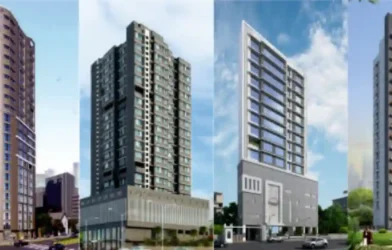Subtotal ₹0.00
Credai, the apex body of real estate developers in India, has unveiled a sweeping vision to transform the country’s property sector into a global benchmark by 2047. At its annual conference, the association released a report titled “The National Real Estate Development Framework – Vision 2047”, outlining nine pillars of reform ranging from land titling and ease of doing business to skill development, sustainability, and the creation of 100 new “cities of tomorrow.”
Credai stressed that the sector’s role goes far beyond construction, highlighting its potential to drive livelihoods, infrastructure, and India’s aspiration to become a developed nation by its centenary of independence.
“The future of Indian real estate is not just about creating buildings, but about building communities, livelihoods, and aspirations,” Credai National President Shekhar Patel said.
The report is both a vision document and a call to action, inviting all stakeholders to come together to transform India’s real estate sector and make it globally competitive, he added.
Patel said the real estate sector would play an important role in making India a developed nation by 2047.
To transform this sector, Credai has suggested a framework comprising nine pillars.
Seeking land reforms, the body said there is a need to ensure conclusive land titling through the Land Titling Act.
It also stressed the need to create a unified national digital land register to enhance transparency and accessibility.
To promote affordable housing, Credai said there is a need to create land banks.
The association also emphasised the development of 100 ‘cities of tomorrow’.
“Ease of doing construction constitutes the third pillar, seeking to transform building plan approvals via digitisation, transparency, and time-bound processing,” Credai said.
The realtors’ body also suggested that the Centre and states should rationalise development and approval charges. It should set up dedicated funds for infrastructure financing, including government-backed infrastructure and housing bonds.
The Credai report also mentioned that there should be a focus on slum redevelopment and promotion of the construction of green buildings.
There is a need for the adoption of new technologies in all spheres of the real estate sector, right from construction to customer relationship management, it added.
Skill development and labour welfare form the eighth pillar, the report said, and advocated state-led demand assessments and trade-specific training infrastructure.
The association also sought reforms in labour cess utilisation to directly benefit workers.
“The final pillar, ease of living, promotes celebrating cultural uniqueness and heritage in all major urban centres, advancing citizen-driven governance models, and incorporating climate resilience into urban infrastructure,” the report said.
Credai sought the establishment of high-level committees at the Prime Minister’s level, state-level war rooms, and a phased implementation plan.
“Together, these pillars chart a path toward a transparent, sustainable, inclusive, and technologically advanced real estate and urban development ecosystem fit for India’s ambitious future,” the association said.














